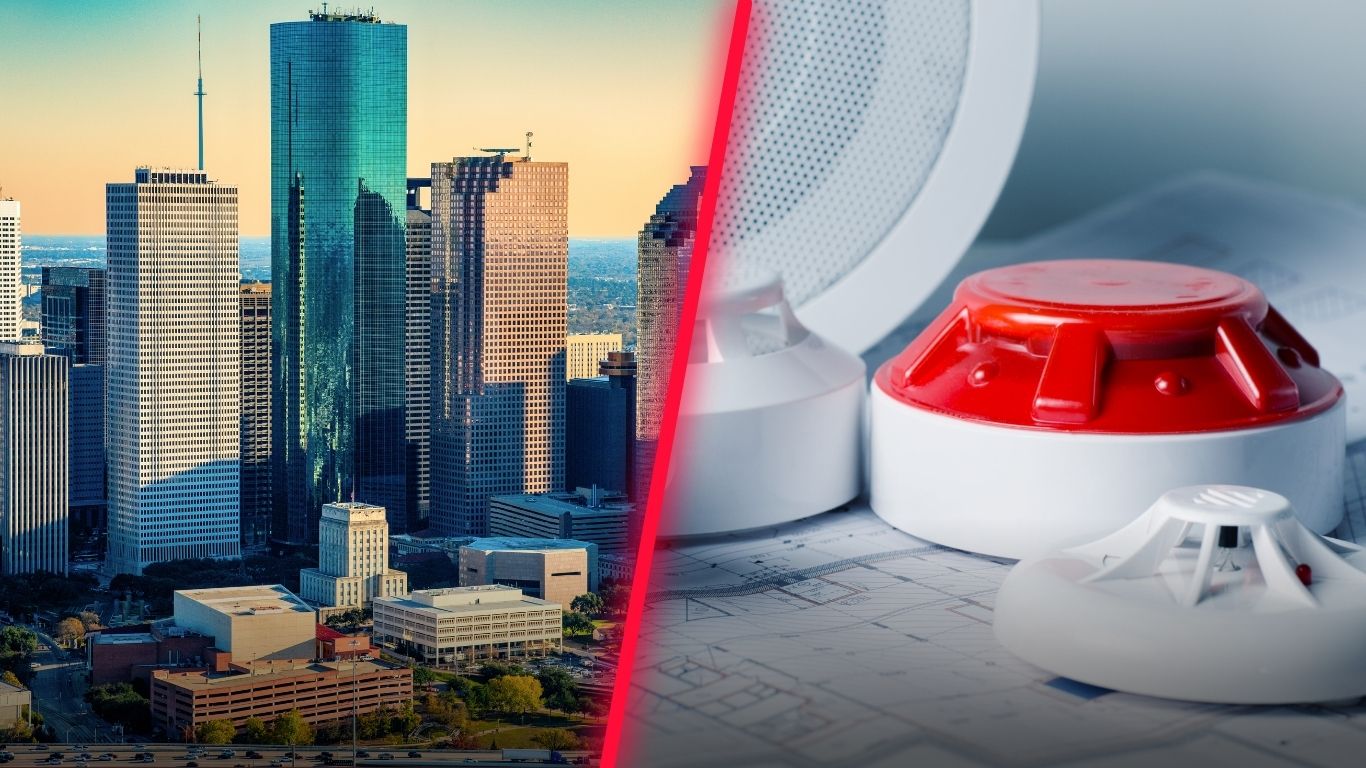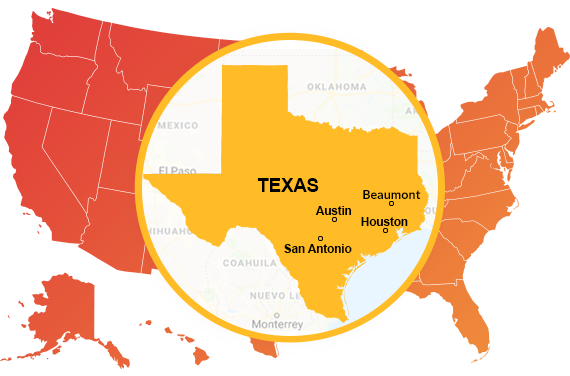When is a Fire Alarm System Required in a Commercial Building?

Fire alarm systems are critical for ensuring the safety of occupants in commercial buildings. Whether or not a fire alarm is required depends on factors like occupancy type, building size, activities conducted within the premises, and local regulations. The National Fire Protection Association (NFPA) outlines guidelines under NFPA 72, while other standards like the International Building Code (IBC) and NFPA 101 provide additional criteria.
Key Factors Determining Fire Alarm Requirements
-Occupancy Type:
-
Group A (Assembly): Venues such as theaters and restaurants require fire alarms if the occupant load is 300+ or if 100+ people occupy levels above or below the main exit level.
-
Group B (Business): Offices and laboratories need alarms if they exceed three stories, host more than 50 occupants above/below the discharge level, or have 300+ total occupants.
-
Group M (Retail): Stores and markets require alarms for a combined occupant load of 500+ or 100+ above/below the main level.
- Building Size:
Larger buildings, particularly high-rises with complex layouts, often mandate fire alarms to facilitate efficient evacuation.
- Type of Activities:
Buildings involving flammable materials or hazardous processes, such as industrial facilities, typically require enhanced fire detection systems.
- Code Compliance:
Local fire codes and regulations determine specific requirements for fire alarms. These often reference widely recognized standards like the International Building Code (IBC) and NFPA 101: Life Safety Code, which address fire alarm installation, maintenance, and emergency egress. Consulting local authorities or a qualified professional ensures compliance with these regulations.
Consulting Professionals:
Determining whether a fire alarm system is required for a commercial building is a complex process. It's advisable to consult fire safety professionals or local authorities who can assess the building's characteristics and occupancy to provide accurate guidance. If you’re in Houston, Harris County, Fort Bend County, or nearby areas, contact Fire Alarm Houston today! Call Now 832-626-7837 or complete the online form for a quote.
FAQs (Frequently Asked Questions)
How can I determine the specific fire alarm requirements for my building?
Consult local building codes, fire departments, or certified fire safety professionals for guidance.
What codes regulate fire alarm systems in the U.S.?
The NFPA 72, NFPA 101, and the International Building Code (IBC) are commonly referenced.
Do all high-rise buildings require fire alarm systems?
Yes, most high-rise buildings are required to have fire alarms due to their size and complexity.
- Aldine
- Alvin
- Ames
- Anahuac
- Angleton
- Arcola
- Atascocita
- Austin
- Bacliff
- Bailey Prairie
- Barker
- Barrett
- Bay City
- Bayou Vista
- Baytown
- Beach City
- Beasley
- Beaumont
- Bellaire
- Boling
- Bonney
- Brazoria
- Brazos Country
- Brookshire
- Brookside Village
- Bunker Hill Village
- Cedar Park
- Channelview
- Cinco Ranch
- Clear Lake Shores
- Cleveland
- Cloverleaf
- Clute
- Conroe
- Corsicana
- Cove
- Crosby
- Cumings
- Cut And Shoot
- Cypress
- Damon
- Danbury
- Dayton
- Dayton Lakes
- Deer Park
- Dickinson
- East Bernard
- El Lago
- Fairchilds
- Fifth Street
- Fort Bend
- Four Corners
- Freeport
- Fresno
- Friendswood
- Fulshear
- Galena Park
- Galveston
- Grand Prairie
- Greatwood
- Guy
- Hardin
- Harris
- Hedwig Village
- Hempstead
- Highlands
- Hillcrest
- Hilshire Village
- Hitchcock
- Hockley
- Holiday Lakes
- Houston
- Huffman
- Hufsmith
- Humble
- Hungerford
- Hunters Creek Village
- Huntsville
- Iago
- Iowa Colony
- Jacinto City
- Jamaica Beach
- Jersey Village
- Katy
- Kemah
- Kendleton
- Kenefick
- Kingwood
- La Marque
- La Porte
- Lake Jackson
- League City
- Liberty
- Liverpool
- Livingston
- Lorena
- Magnolia
- Manor
- Manvel
- Meadows Place
- Mission Bend
- Missouri City
- Mont Belvieu
- Montgomery
- Morgans Point
- Nassau Bay
- Navasota
- Needville
- New Territory
- North Cleveland
- North Houston
- Oak Island
- Oak Ridge North
- Old River-Winfree
- Orange
- Orchard
- Panorama Village
- Pasadena
- Pattison
- Patton Village
- Pearland
- Pecan Grove
- Pine Island
- Pinehurst CDP
- Piney Point Village
- Pleak
- Plum Grove
- Port Arthur
- Porter
- Porter Heights
- Prairie View
- Richardson
- Richmond
- Richwood
- Roman Forest
- Rosenberg
- Rosharon
- Sabine Pass
- San Antonio
- San Felipe
- San Leon
- Santa Fe
- Seabrook
- Sealy
- Seguin
- Sheldon
- Shenandoah
- Shoreacres
- Silsbee
- Simonton
- South Houston
- Southside Place
- Splendora
- Spring
- Stafford
- Stagecoach
- Sugar Land
- Taylor Lake Village
- Texas City
- The Woodlands
- Thompsons Alief
- Tiki Island
- Todd Mission
- Tomball
- Waller
- Wallis
- Webster
- West Columbia
- West University Place
- Weston Lakes
- Willis
- Woodbranch
- Woodloch


